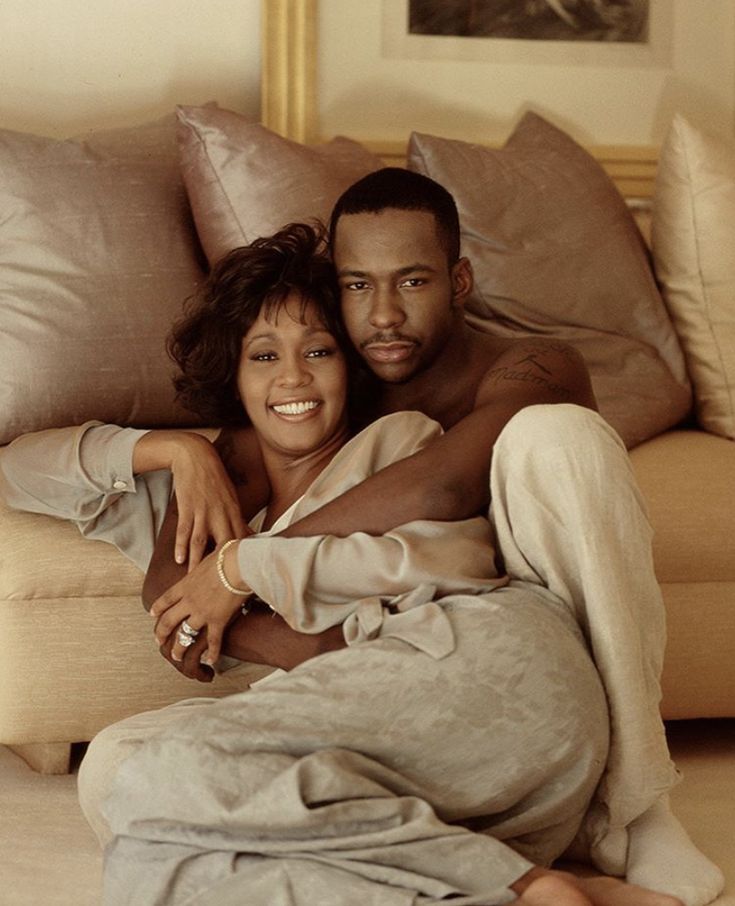Cliché Relationship Advice: When to And When Not to Listen to Them
-
Dorcas Akintoye

- November 8, 2024
We’ve all heard certain relationship advice repeated so frequently that it has become cliché. Although some of these suggestions are useful, others may be deceptive, particularly if taken out of context. The fact is that relationships are complicated, and not every circumstance may benefit from the same advice. This essay will examine four common pieces of cliché relationship advice and explain when it makes sense to follow them and when it’s best to ignore them.

(1) LOVE CONQUERS ALL
Love is a strong emotion that can inspire you to overcome obstacles like distance or financial hardships, as well as trying moments and misunderstandings. Love is often the basis for overcoming challenges in a partnership. When this advice promotes staying in unhealthy or toxic relationships, it may be detrimental. No matter how much love there is, it is insufficient to resolve problems like emotional abuse, disrespect, or conflicting life goals. Understanding that certain issues call for expert assistance or separation in these situations is critical.

(2) OPPOSITES ATTRACT
Indeed, having unique qualities might occasionally help a relationship stay balanced. Individuals may exhibit contrasting traits, such as spontaneity and organisation, which, when combined, have a complementary effect. You may both develop and learn from each other when you have opposing strengths. Despite their tendency to end quickly, opposites do attract. Differing views on fundamental principles such as integrity, decency, or aspirations in life might lead to an argument. There may be long-term friction if your views on family, money, or lifestyle differ.

(3) TIME HEALS ALL WOUNDS
Emotional pain can be healed by time, particularly following a breakup or major argument. Clarity can come from being distant from the hurt, which enables you to process your emotions and ultimately move past old hurts. This advice may remind you to be patient with your recovery process. Not all scars can be healed by time alone. Emotional wounds may eventually fester if they are not treated. People frequently require therapy, honest conversation, and deliberate efforts to comprehend and express their emotions to heal. Ignoring the core cause and waiting for time to pass can result in reoccurring problems in the future.

(4) YOU SHOULD NEVER CHANGE FOR SOMEONE
In any relationship, it’s critical to remain loyal to yourself. It’s a warning sign if your partner asks you to modify core aspects of your identity, such as your values, beliefs, or aspirations. Healthy relationships flourish When spouses embrace each other for who they are. In relationships, self-improvement and compromise are essential. It is not about altering who you are when your partner urges you to be more responsible, communicative, or thoughtful; instead, it is about becoming a better person and partner. Love and respect for one another can motivate positive change that can strengthen your relationship.

CONCLUSION
In some instances, clichéd advice on relationships might be beneficial, but knowing when to take it seriously and proceed cautiously is crucial. There is no one-size-fits-all approach to relationships; what works for one pair might not work for another. You’ll be more capable of handling the highs and lows of love if you consider the advice you are given carefully and implement it in your relationship. Never forget that the true secrets of a long-lasting relationship are self-awareness, respect for one another, and healthy communication.

Dorcas Akintoye is a versatile writer with a passion for beauty, fashion, relationships, and culinary delight. With a keen eye for detail and a passion for storytelling, she adds a touch of elegance to every topic she explores. She is a writer at THEWILL DOWNTOWN.
- Dorcas Akintoye
- Dorcas Akintoye
- Dorcas Akintoye
- Dorcas Akintoye
- Dorcas Akintoye
- Dorcas Akintoye
- Dorcas Akintoye
- Dorcas Akintoye
- Dorcas Akintoye
- Dorcas Akintoye
- Dorcas Akintoye
- Dorcas Akintoye
- Dorcas Akintoye
- Dorcas Akintoye
- Dorcas Akintoye
- Dorcas Akintoye
- Dorcas Akintoye
- Dorcas Akintoye
- Dorcas Akintoye
- Dorcas Akintoye
- Dorcas Akintoye
- Dorcas Akintoye
- Dorcas Akintoye
- Dorcas Akintoye
- Dorcas Akintoye
- Dorcas Akintoye
- Dorcas Akintoye
- Dorcas Akintoye
- Dorcas Akintoye
- Dorcas Akintoye
- Dorcas Akintoye
- Dorcas Akintoye
- Dorcas Akintoye
- Dorcas Akintoye
- Dorcas Akintoye
- Dorcas Akintoye
- Dorcas Akintoye
- Dorcas Akintoye
- Dorcas Akintoye
- Dorcas Akintoye
- Dorcas Akintoye
- Dorcas Akintoye
- Dorcas Akintoye
- Dorcas Akintoye
- Dorcas Akintoye
- Dorcas Akintoye
- Dorcas Akintoye
- Dorcas Akintoye
- Dorcas Akintoye
- Dorcas Akintoye
- Dorcas Akintoye
- Dorcas Akintoye
- Dorcas Akintoye
- Dorcas Akintoye
- Dorcas Akintoye
- Dorcas Akintoye
- Dorcas Akintoye
- Dorcas Akintoye
- Dorcas Akintoye
- Dorcas Akintoye
- Dorcas Akintoye
- Dorcas Akintoye
- Dorcas Akintoye
- Dorcas Akintoye
- Dorcas Akintoye
- Dorcas Akintoye
- Dorcas Akintoye
- Dorcas Akintoye
- Dorcas Akintoye
- Dorcas Akintoye
- Dorcas Akintoye
- Dorcas Akintoye
- Dorcas Akintoye
- Dorcas Akintoye
- Dorcas Akintoye
- Dorcas Akintoye
- Dorcas Akintoye
- Dorcas Akintoye
- Dorcas Akintoye
- Dorcas Akintoye
- Dorcas Akintoye
- Dorcas Akintoye
- Dorcas Akintoye
- Dorcas Akintoye
- Dorcas Akintoye
- Dorcas Akintoye
- Dorcas Akintoye
- Dorcas Akintoye
- Dorcas Akintoye
- Dorcas Akintoye
- Dorcas Akintoye
- Dorcas Akintoye
- Dorcas Akintoye
- Dorcas Akintoye
- Dorcas Akintoye
- Dorcas Akintoye
- Dorcas Akintoye
- Dorcas Akintoye
- Dorcas Akintoye
- Dorcas Akintoye
- Dorcas Akintoye
- Dorcas Akintoye
- Dorcas Akintoye
- Dorcas Akintoye
- Dorcas Akintoye
- Dorcas Akintoye
- Dorcas Akintoye
- Dorcas Akintoye
- Dorcas Akintoye
- Dorcas Akintoye
- Dorcas Akintoye
- Dorcas Akintoye
- Dorcas Akintoye
- Dorcas Akintoye
- Dorcas Akintoye
- Dorcas Akintoye
- Dorcas Akintoye
- Dorcas Akintoye
- Dorcas Akintoye
- Dorcas Akintoye
- Dorcas Akintoye
- Dorcas Akintoye
- Dorcas Akintoye
- Dorcas Akintoye
- Dorcas Akintoye
- Dorcas Akintoye
- Dorcas Akintoye
- Dorcas Akintoye
- Dorcas Akintoye
- Dorcas Akintoye
- Dorcas Akintoye
- Dorcas Akintoye
- Dorcas Akintoye
- Dorcas Akintoye
- Dorcas Akintoye
- Dorcas Akintoye
- Dorcas Akintoye
- Dorcas Akintoye
- Dorcas Akintoye
- Dorcas Akintoye
- Dorcas Akintoye
- Dorcas Akintoye
- Dorcas Akintoye
- Dorcas Akintoye
- Dorcas Akintoye
- Dorcas Akintoye
- Dorcas Akintoye
- Dorcas Akintoye
- Dorcas Akintoye
- Dorcas Akintoye
- Dorcas Akintoye
- Dorcas Akintoye
- Dorcas Akintoye
- Dorcas Akintoye
- Dorcas Akintoye
- Dorcas Akintoye
- Dorcas Akintoye
- Dorcas Akintoye
- Dorcas Akintoye
- Dorcas Akintoye
- Dorcas Akintoye
- Dorcas Akintoye
- Dorcas Akintoye
- Dorcas Akintoye
- Dorcas Akintoye
- Dorcas Akintoye
- Dorcas Akintoye
- Dorcas Akintoye
- Dorcas Akintoye
- Dorcas Akintoye
- Dorcas Akintoye
- Dorcas Akintoye
- Dorcas Akintoye
- Dorcas Akintoye
- Dorcas Akintoye
- Dorcas Akintoye
- Dorcas Akintoye
- Dorcas Akintoye
- Dorcas Akintoye
- Dorcas Akintoye
- Dorcas Akintoye
- Dorcas Akintoye
- Dorcas Akintoye
- Dorcas Akintoye
- Dorcas Akintoye
- Dorcas Akintoye
- Dorcas Akintoye
- Dorcas Akintoye
- Dorcas Akintoye
- Dorcas Akintoye
- Dorcas Akintoye
- Dorcas Akintoye
- Dorcas Akintoye
- Dorcas Akintoye
- Dorcas Akintoye
- Dorcas Akintoye
- Dorcas Akintoye
- Dorcas Akintoye
- Dorcas Akintoye
- Dorcas Akintoye
- Dorcas Akintoye
- Dorcas Akintoye
- Dorcas Akintoye
- Dorcas Akintoye
- Dorcas Akintoye
- Dorcas Akintoye
- Dorcas Akintoye
- Dorcas Akintoye
- Dorcas Akintoye
- Dorcas Akintoye
- Dorcas Akintoye
- Dorcas Akintoye
- Dorcas Akintoye
- Dorcas Akintoye
- Dorcas Akintoye
- Dorcas Akintoye
- Dorcas Akintoye
- Dorcas Akintoye
- Dorcas Akintoye
- Dorcas Akintoye
- Dorcas Akintoye
- Dorcas Akintoye
- Dorcas Akintoye
- Dorcas Akintoye
- Dorcas Akintoye
- Dorcas Akintoye
- Dorcas Akintoye
- Dorcas Akintoye
- Dorcas Akintoye
- Dorcas Akintoye
- Dorcas Akintoye
- Dorcas Akintoye
- Dorcas Akintoye
- Dorcas Akintoye
- Dorcas Akintoye
- Dorcas Akintoye
- Dorcas Akintoye
- Dorcas Akintoye
- Dorcas Akintoye
- Dorcas Akintoye
- Dorcas Akintoye
- Dorcas Akintoye
- Dorcas Akintoye
- Dorcas Akintoye
- Dorcas Akintoye
- Dorcas Akintoye
- Dorcas Akintoye
- Dorcas Akintoye
- Dorcas Akintoye
- Dorcas Akintoye
- Dorcas Akintoye
- Dorcas Akintoye
- Dorcas Akintoye
- Dorcas Akintoye
- Dorcas Akintoye
- Dorcas Akintoye
- Dorcas Akintoye
- Dorcas Akintoye
- Dorcas Akintoye
- Dorcas Akintoye
- Dorcas Akintoye
- Dorcas Akintoye
- Dorcas Akintoye
- Dorcas Akintoye
- Dorcas Akintoye
- Dorcas Akintoye
- Dorcas Akintoye
- Dorcas Akintoye
- Dorcas Akintoye
- Dorcas Akintoye
- Dorcas Akintoye
- Dorcas Akintoye
- Dorcas Akintoye
- Dorcas Akintoye
- Dorcas Akintoye
- Dorcas Akintoye
- Dorcas Akintoye
- Dorcas Akintoye
- Dorcas Akintoye
- Dorcas Akintoye
- Dorcas Akintoye
- Dorcas Akintoye
- Dorcas Akintoye
- Dorcas Akintoye
- Dorcas Akintoye
- Dorcas Akintoye
- Dorcas Akintoye
- Dorcas Akintoye
- Dorcas Akintoye
- Dorcas Akintoye
- Dorcas Akintoye
- Dorcas Akintoye
- Dorcas Akintoye
- Dorcas Akintoye
- Dorcas Akintoye
- Dorcas Akintoye
- Dorcas Akintoye
- Dorcas Akintoye
- Dorcas Akintoye
- Dorcas Akintoye
- Dorcas Akintoye
- Dorcas Akintoye
- Dorcas Akintoye
- Dorcas Akintoye
- Dorcas Akintoye
- Dorcas Akintoye
- Dorcas Akintoye
- Dorcas Akintoye
- Dorcas Akintoye
- Dorcas Akintoye
- Dorcas Akintoye
- Dorcas Akintoye
- Dorcas Akintoye
- Dorcas Akintoye
- Dorcas Akintoye
- Dorcas Akintoye
- Dorcas Akintoye
- Dorcas Akintoye
- Dorcas Akintoye
- Dorcas Akintoye
- Dorcas Akintoye
- Dorcas Akintoye
- Dorcas Akintoye
- Dorcas Akintoye
- Dorcas Akintoye
- Dorcas Akintoye
- Dorcas Akintoye
- Dorcas Akintoye
- Dorcas Akintoye
- Dorcas Akintoye
- Dorcas Akintoye
- Dorcas Akintoye
- Dorcas Akintoye
- Dorcas Akintoye
- Dorcas Akintoye
- Dorcas Akintoye
- Dorcas Akintoye
- Dorcas Akintoye
- Dorcas Akintoye
- Dorcas Akintoye
- Dorcas Akintoye
- Dorcas Akintoye
- Dorcas Akintoye
- Dorcas Akintoye
- Dorcas Akintoye
- Dorcas Akintoye
- Dorcas Akintoye
- Dorcas Akintoye
- Dorcas Akintoye
- Dorcas Akintoye
- Dorcas Akintoye
- Dorcas Akintoye
- Dorcas Akintoye
- Dorcas Akintoye
- Dorcas Akintoye
- Dorcas Akintoye
- Dorcas Akintoye
- Dorcas Akintoye
- Dorcas Akintoye
- Dorcas Akintoye
- Dorcas Akintoye
- Dorcas Akintoye
- Dorcas Akintoye
- Dorcas Akintoye
- Dorcas Akintoye
- Dorcas Akintoye
- Dorcas Akintoye
- Dorcas Akintoye
- Dorcas Akintoye
- Dorcas Akintoye
- Dorcas Akintoye
- Dorcas Akintoye
- Dorcas Akintoye
- Dorcas Akintoye
- Dorcas Akintoye
- Dorcas Akintoye
- Dorcas Akintoye
- Dorcas Akintoye
- Dorcas Akintoye
- Dorcas Akintoye
- Dorcas Akintoye
- Dorcas Akintoye
- Dorcas Akintoye
- Dorcas Akintoye
- Dorcas Akintoye
- Dorcas Akintoye
- Dorcas Akintoye
- Dorcas Akintoye
- Dorcas Akintoye
- Dorcas Akintoye
- Dorcas Akintoye
- Dorcas Akintoye
- Dorcas Akintoye
- Dorcas Akintoye
- Dorcas Akintoye
- Dorcas Akintoye
- Dorcas Akintoye
About Author / Dorcas Akintoye
Dorcas Akintoye is a versatile writer with a passion for beauty, fashion, relationships, and culinary delight. With a keen eye for detail and a passion for storytelling, she adds a touch of elegance to every topic she explores. She is a writer at THEWILL DOWNTOWN.






